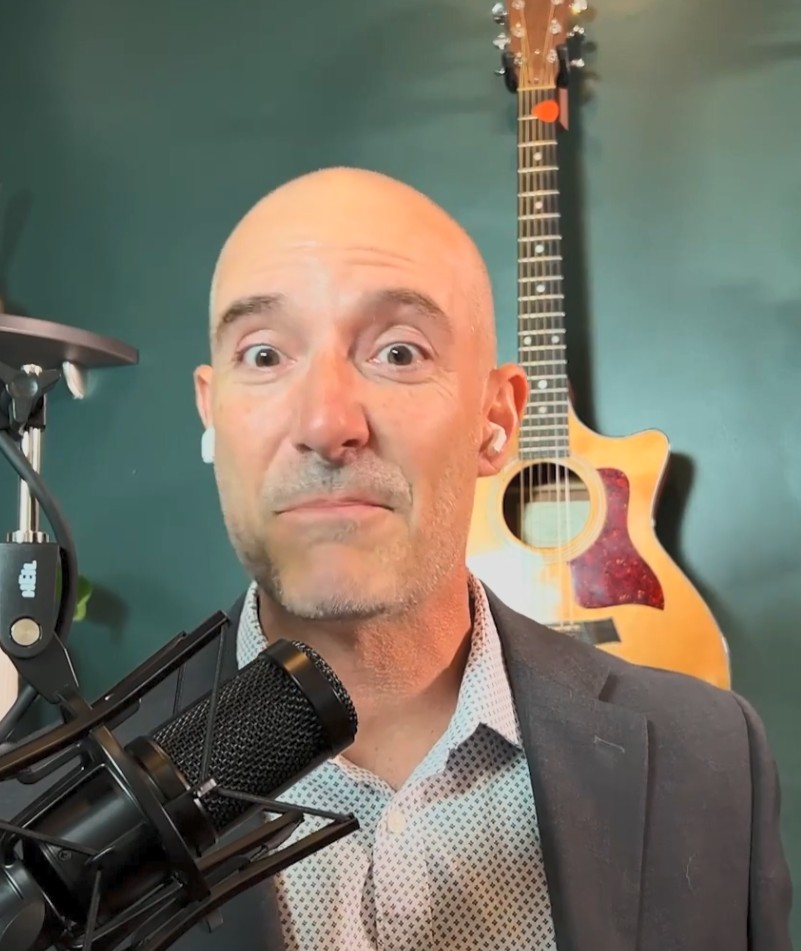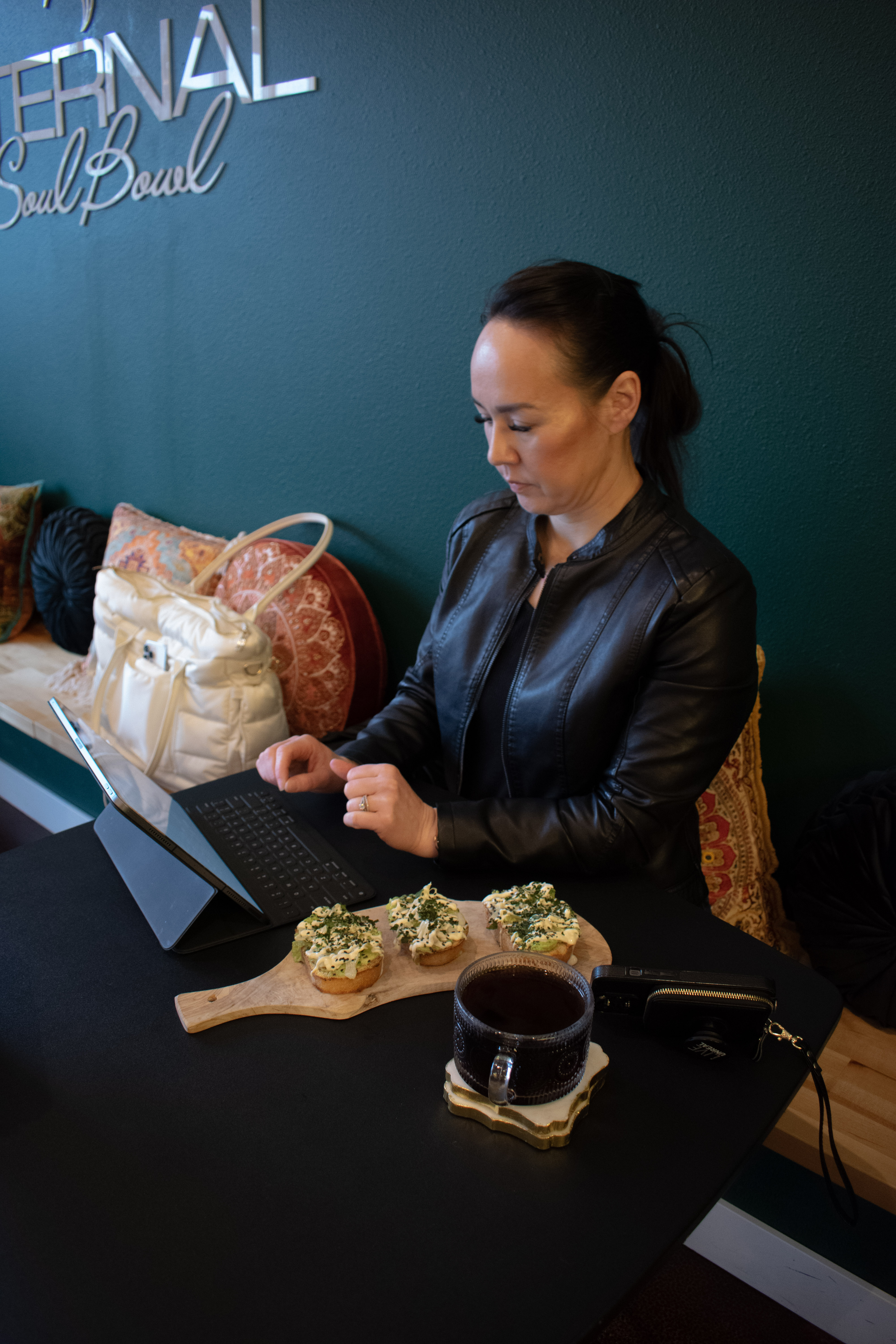
From Real Estate Investor to Life Changer: How Vincent Palazzotto Turned Investment Properties into Recovery Homes
Date published:
October 6, 2025
Real estate investing isn't just about building wealth—it's about creating possibilities. In my latest conversation with Vincent Palazzotto, we explored how one entrepreneur transformed his real estate portfolio from Airbnb properties into sober living facilities, proving that your highest and best use might be bigger than you ever imagined.
The Accidental Real Estate Investor
Vincent's journey started where many great investment stories begin: with necessity and curiosity. Growing up in a household that constantly moved from rental to rental, he became fascinated by the stability that homeownership represented. At just 16 years old, while his peers headed to the beach, Vincent was attending Carlton Sheets real estate seminars.
His first step into real estate wasn't buying property—it was becoming a landlord without actually being one. As a college student, Vincent rented a house and sublet rooms, covering his own rent costs through the cash flow. This early experience taught him a fundamental truth: real estate is the easiest small business to dip your toe into.
The "One Property at a Time" Philosophy
When people ask Vincent how he went from one property to 42 in just five years, his answer is beautifully simple: "One property at a time. How do you eat an elephant? One bite at a time."
His Practical Advice for First-Time Investors:
Start with what you know: Vincent's first investment property was actually a second primary residence. He moved into it, renovated it over a year, and benefited from primary residence rates and lower down payments. This strategic approach minimized risk while maximizing learning opportunities.
Keep it close: One of Vincent's most valuable lessons came from Bill Fitzpatrick's concept of finding "six great properties in your backyard." Scattering properties across different counties creates complexity—different contractors, different courts for evictions, different regulations. By concentrating investments locally, you build economies of scale and intimate market knowledge.
Choose the right structure: Vincent started with townhomes that had HOAs handling exterior maintenance. This allowed him to focus on what he knew how to do: put contracts together, meet with people, and enforce leases—all while working full-time in corporate America.
The Power of House Hacking
Vincent is a strong advocate for multi-family properties as first investments. Instead of buying a single-family home that becomes a liability on your debt-to-income ratio, consider a duplex, triplex, or quadplex as your primary residence.
Here's why this strategy is powerful:
- You can use primary residence financing (best rates, lowest down payments)
- Rental income from other units offsets your mortgage
- You reduce your debt-to-income ratio, positioning yourself to buy more properties
- You learn the landlord business with tenants right there
- One transaction gives you multiple units
As Vincent puts it: "You only have to do it for a year." After that year, you can rent out your unit and move to a new primary residence, now owning four units from one transaction.
Three Ways Real Estate Makes You Money
Vincent breaks down wealth building in real estate into three key components:
- Appreciation: Property values increase over time
- Depreciation: Tax benefits that can significantly reduce your tax burden
- Cash Flow: Monthly income after expenses
For high earners, the depreciation piece can be particularly powerful. With bonus depreciation rules, you can potentially offset significant tax liability—Vincent gives the example of taking $425,000 in depreciation in year one on a property through cost segregation studies.
When Markets Shift: Reading the Signs
Vincent closely monitors VA foreclosures as an economic indicator. In January, there were about 40-50 nationwide. Today, that number exceeds 400—still only a third of the 15,000-17,000 seen during the 2008 crisis, but a significant uptick signaling market stress.
His advice for current market conditions? It's a cautious time with opportunity ahead. While interest rates at 7.5% feel high compared to recent years, they're actually below the historical average of 9%. For those with properties locked in at 2-3% rates, holding onto that "free money" while strategically adding properties could position you well for the next market cycle.
The Pivot: From Airbnb to Sober Living
Vincent's story takes its most meaningful turn when regulations shut down his Airbnb business in Lancaster, Pennsylvania. Faced with $5 million in beautifully furnished properties that could no longer operate as short-term rentals, he could have sold everything and moved on.
Instead, after losing several people close to him to addiction, Vincent discovered sober living homes. His uncle, who had led a men's program at Times Square Church, introduced him to the concept: federally protected housing where people in recovery can live in community, supporting each other's sobriety.
What Makes Porch Light Recovery Different
Most sober living facilities, Vincent observed, are located in the worst neighborhoods, often across from problematic areas. His model is different:
- Dignified spaces: These were Airbnbs designed around creating exceptional experiences
- Strong neighborhoods: Safe, supportive environments for recovery
- State-licensed facilities: With proper oversight and accountability
- Inclusive approach: Planning homes for LGBTQI+ individuals, veterans, and first responders
- Community integration: In a city that embraces recovery
Vincent now operates men's and women's homes serving 24 beds, proving that real estate can be both profitable and purposeful.
The Mindset That Changes Everything
Throughout our conversation, several mindset principles emerged that apply far beyond real estate:
Fear is normal—take action anyway: Vincent acknowledges that getting into business is scary. That's the number one reason people don't take action. But the cost of inaction is often higher than the risk of trying.
Surround yourself with believers: Vincent teaches his high school students to identify "takers" versus supporters. Takers sound like: "I don't know... I heard a lot of people fail at that." Supporters sound like: "How can I support you? That's exciting! Let me know how it goes."
You don't need a partner to start: When a former student wanted to bring in a business partner, Vincent challenged him: "Why don't you lead the way? Then if you want to hire them, you can offer them a job."
Believe you can do it: As Vincent emphasizes, you have all the power and knowledge to start. Read, learn, and align with people who believe in you.
Highest and Best Use
Bill Zeondorf, who managed the Rockefeller real estate fortune, constantly talked about "highest and best use." For Vincent, the highest and best use of his properties wasn't maximizing Airbnb revenue—it was creating spaces where people could rebuild their lives.
This concept extends beyond real estate. What is the highest and best use of your skills, your business, your influence?
For real estate agents, Vincent notes that most are excellent at helping others build wealth but struggle to build their own. The knowledge is already there. The market familiarity exists. What's missing is often just the decision to take that first step.
Key Takeaways for Aspiring Investors
- Start small and close: Your first investment should be within 5-10 minutes of where you live
- Consider multi-family: A duplex or triplex as your primary residence gives you multiple units from one transaction
- Use corporate income strategically: W-2 income gets you the best lending rates—invest while you have it
- Think beyond traditional rentals: Explore different use cases for properties (30-day furnished rentals, sober living, etc.)
- Understand the tax advantages: Work with a real estate-savvy CPA and learn about depreciation strategies
- Read the market indicators: Watch foreclosure rates, days on market, and interest rate trends
- Don't chase every deal: Patience and selectivity beat volume
- Leverage is your friend: Real estate allows you to use other people's money in ways traditional businesses don't
Resources Vincent Recommends
- "The Weekend Millionaire Secrets of Investing in Real Estate" - Essential reading for balancing W-2 income with investing
- "Every Landlord's Tax Deduction Guide" by Nolo - For intelligent conversations with your CPA
- Bill Fitzpatrick's 100 Action Principles - About taking action and highest and best use thinking
- "The Big Short" - Must-watch for understanding market cycles and indicators
The Real ROI
Vincent's journey proves that the real return on investment isn't just measured in cash flow and appreciation. It's measured in lives changed, communities served, and the ripple effect of one person deciding to think bigger.
As Vincent shared, watching parents reunite with their children after months in recovery—seeing those kids just wanting their mom or dad back—creates an "intrinsic off-the-wall reaction" that no investment return can match.
Take Action Today
Whether you're a real estate professional, corporate executive, or entrepreneur, the principles from Vincent's story apply:
- Start where you are with what you have
- Don't overcomplicate it—take one step at a time
- Think about highest and best use—for your properties and your life
- Surround yourself with believers
- Don't let fear steal your opportunity
Ready to explore your highest and best use? Grab a free strategy session where we'll map out how to scale your business without burning out and start thinking differently about what's possible. Book your call here.


.jpg)

.jpg)
.jpg)

.jpg)
%20(1).jpg)
